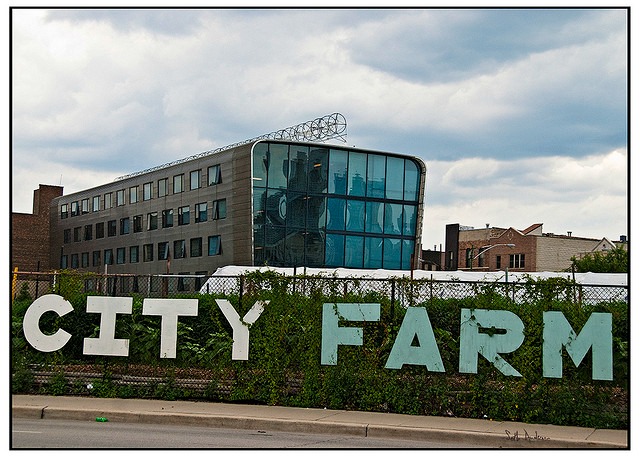Zero Waste Champion Eyes Historic Streetcar Garage Site For Big Sustainability Project
By Rachel Cromidas in News on May 28, 2015 4:45PM
Chicago's resident champion of the zero waste movement, Ken Dunn, has been encouraging adaptive reuse around the city for decades now—from City Farm to Creative Reuse Warehouse to his 40-year-old nonprofit, the Resource Center. Now he's got his eyes on a decade-long, $10 million-plus project to bring it all together.
Dunn, a longtime Hyde Park resident known as the city's "zero waste man" is preparing a historic streetcar garage and six-acre land at 93rd Street and Drexel Avenue to become the future home to the Creative Reuse Warehouse, an urban farm and commercial kitchen, composting center and a place to take and store the vast shipments of unsellable food products that come through Chicago—what Dunn estimates at 600 tons per day.
From a home-base at the Creative Reuse Warehouse on East 135th Street, Dunn has been collecting, storing and reselling unwanted shipments of everything from 76 semi-trailers full of beer bottles to unused bicycles, among a host of other objects, as DNAinfo chronicled in a recent profile.
Dunn told Chicagoist he's hoping the new, larger space will allow him to showcase every step in the adaptive reuse process, from food growing to distribution to composting—in one place.
"Seeing them all together, people can say, yes, we can drop our international, processed food system for a healthier, local organic food system that is totally sustainable," Dunn said. "I am envisioning this one spot that has all of these programs in one location that would convey the notion that there is a solution to our increasingly unsustainable carbon footprint."
Dunn estimates the cost at $10 million to $15 million over the next decade, including the $500,000 he would need to bring the streetcar warehouse up to par. Once it's renovated, it can be outfitted with solar panels and windmills that would eventually power coolers and refrigerators for storing food.
He and his partners are preparing a fundraiser for later this year, and Dunn says Chef Rick Bayless, who has bought produce from Dunn to use in his restaurants, has signed on to do a cooking demonstration.
The effort will be infused with the philosophy that underscores all of Dunn's sustainability efforts: taking resources that are often overlooked—like trash—and finding people who can use it, in a system that is self-sustaining.
"We are really failing as a civilization to provide equal access to a high quality of life," he said. "But we can live better being more responsible with our resources."
